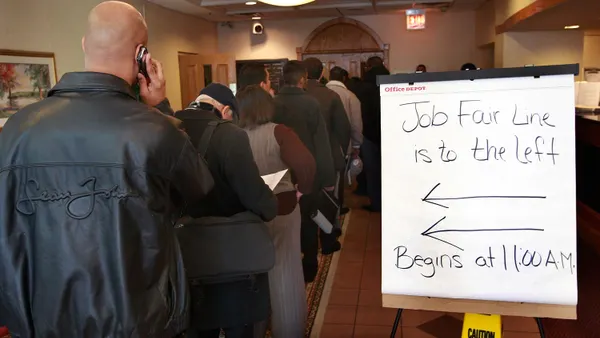Dive Brief:
- While 9 in 10 companies say they will return to the office by 2024, nearly one-quarter of workers surveyed by ResumeBuilder said their manager goes into the office less frequently than they do. About 42% said they attend the office about the same amount of time.
- Only 19% of respondents said they were bothered by their boss coming in less frequently than they do, however.
- Notably, 77% of workers surveyed said they have team members who don’t come in weekly even though they themselves are required to, while more than half said they have teammates who work fully remotely. This results in many workers being on video calls “a lot of the time” or “all the time,” according to ResumeBuilder.
Dive Insight:
While workers generally may be unbothered by their bosses not coming into the office as much as them, the data highlights the complexity of RTO and how culture plays a key part in ensuring workers are happy with their arrangements.
“Inconsistent RTO and WFH expectations will impact morale if there isn’t flexibility,” Julia Toothacre, resume and career strategist, said in the blog post. “Some people like going into the office and want that separation from their home, but those people should still be allowed WFH if there are other team members who are already WFH permanently.”
Companies that implement an RTO policy need to remember that managers indeed play a key role in managing those conversations, experts previously told HR Dive. Leadership sets the tone for their teams, and those that come into the office less than their teammates may create tension if this isn’t communicated.
Employers also may need to be wary of strict RTO mandates, other surveys have shown. Almost half of workers surveyed by the Integrated Benefits Institute said they would quit their job or begin looking for a new job immediately if their employers mandated a full-time return to the office.
“There is no point in forcing people back into the office other than to justify paying rent for the office space, especially if most of the team is at home,” Toothacre said. “This kind of inflexible thinking is what leads people to look for a new position. It’s the lack of flexibility that really ruins the morale and culture of a company or team.”












